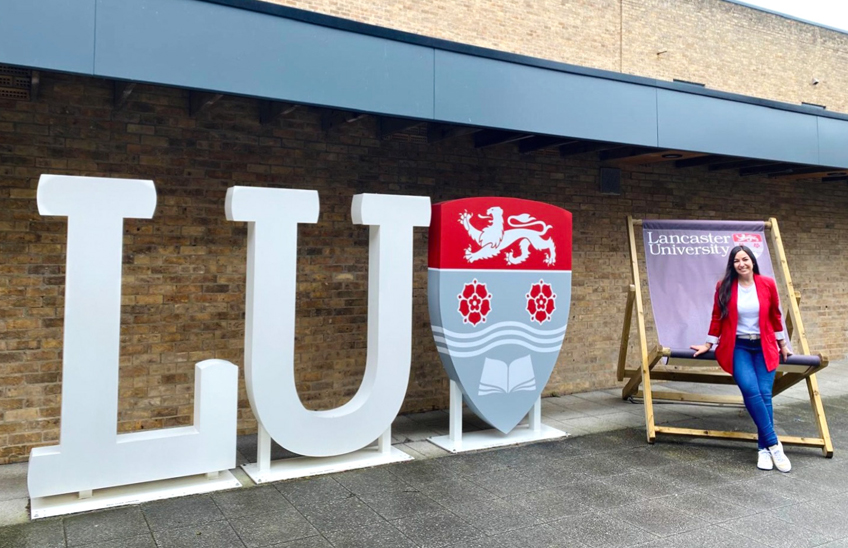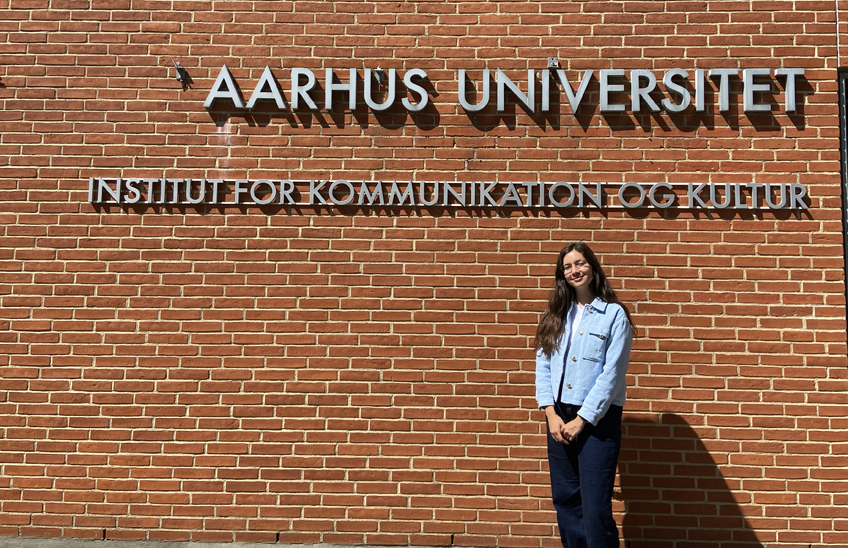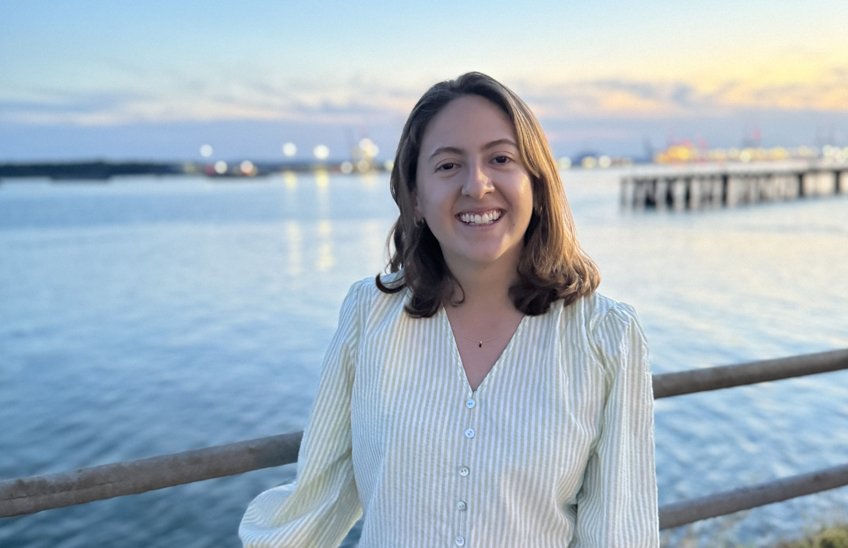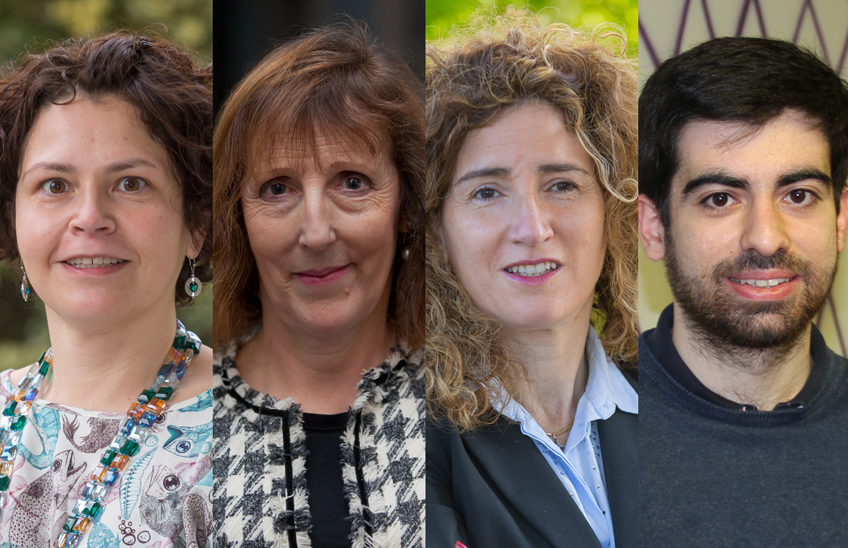Discursive representation of palliative care takes ICS researcher Alicia Hernando to Lancaster
The pre-doctoral researcher has spent time at the ESRC Centre for Corpus Approaches to Social Science, a world reference in the use of linguistic corpora for the social sciences.

FotoCedida/Predoctoralresearcher Alicia Hernando, at Lancaster University, where she has been on a research stay.
12 | 07 | 2024
Picturesque streets and a famous medieval castle define Lancaster, the city in northwest England that has hosted Alicia Hernando, a predoctoral researcher at the Global Observatory of Palliative Care, for the past three months. ATLANTES Global Observatory of Palliative Care at Institute for Culture and Society (ICS) of the University of Navarra. "It's a typical university town, very nice. It looks like the setting of Harry Potter," he notes.
There he has completed a research stay at the ESRC Centre for Corpus Approaches to Social Science at Lancaster University. Lancaster Universitya pioneering center and world reference in the use of linguistic corpora for the social sciences. This is part of the Department of Linguistics and English Language (LAEL), the third most prominent worldwide, ahead of Oxford and Harvard universities, according to the QS World University Rankings by Subject 2024.
For the researcher, sharing and discussing the doctoral thesis she is working on, in which she studies the discursive representation of palliative care in the public sphere in Spain, has been very enriching: "I have learned a lot. The researchers at department work hand in hand with palliativists in European projects and know how to make the most of corpus linguistics in the medical field".
In this case, Hernando has delved more deeply into the linguistic part, with the help of internationally renowned experts, work which complements the one he is already doing at the ICS, more focused on palliative care from the medical perspective. The director of the stay was Professor Elena Semino, Professor of Linguistics and Stylistics at LAEL and Director of the ESRC Centre for Corpus Approaches to Social Science. Veronika Koller, professor of programs of study at speech, also supervised the stay.
During these months, the researcher has been able to test the tool (rubric) that has analyzed a corpus of more than 900 texts from which, in the second part of her research she will select the three most representative in order to make an effective message proposal on palliative care in the public sphere. "I had two meetings a month to explain how I was progressing and how I was analyzing the texts," he recalls.
These meetings have been a kind of test of fire for the researcher, which have allowed her to improve her methodology: "They have been very valuable. The most enriching discussions have revolved around different methodological issues with the intention of responding to the specific problems of our country, which do not occur in other places in the same way. They have given me many tools".
During her stay, she also traveled to Scotland to meet with David Clark, Professor Emeritus of Sociology at the University of Glasgow and author of the play Cicely and Davidon the origins of palliative care. The ATLANTES Global Observatory of Palliative Care translated it for the first time into Spanish and performed it last March in Cartagena de Indias (Colombia) and Pamplona. Clark attended the performance in Navarra.
On this occasion, Hernando, who led the Spanish adaptation of the theatrical project , has collaborated in the revision of the text of two new plays, one potential



